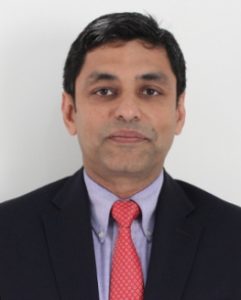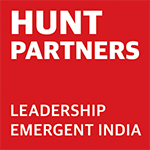Ranjit GuptaCEO (outgoing) ‐ Ostro Energy
Ranjit Gupta holds a Bachelors’ in Tech, Mechanical Engineering from Indian Institute of Technology in Mumbai.
He has over 15 years of experience in Operations Management, Renewable Energy, Thermal Power and O&G industry. Currently, he is the co-owner at Aleo Manali Hydropower. He started his career in 1991 with Schlumberger. In 2007, he was founding CEO at Indiabulls Power Limited. As founding CEO he was instrumental in building the power business from scratch at Indiabulls. In 2012, he co-founded Orange Powergen to set up Renewable Energy Projects in India and abroad. He then went on to be one of the founders of Ostro Energy in 2014 and was also its CEO. In 2018, Ostro Energy was sold to Renew Power, making it one of the largest deals in the industry.
Mr.Gupta is also on the board of directors for EACIIT, a software solutions company.

1. What was the mandate given to you by the Board when you took over in your role?
Ostro Energy was launched as a Renewable Energy platform to build, own & operate approx. 800 MW of Wind Energy projects through deployment of USD 230 M. The business was launched in July 2014 and about a year later, allocation was increased to USD 280 M by the investors and target capacity was enhanced to 1000 MW RE projects both Wind & Solar. Objective of business was to build this capacity and provide an exit to shareholders in 2019.
2. How much of that has been achieved? What were the challenges faced?
Ostro was a very successful platform. The platform achieved its targets more than a year in advance. It was sold to another large Renewable Energy company in beginning of 2018. There were several challenges faced during build out of platform. They ranged for hiring the right team, financing of projects, construction challenges on the ground, changes in regulatory framework since power is a state subject and operational challenges while projects were generating power.
3. What are the key challenges your organization is facing currently? And what are the steps you are taking?
Ostro has been sold and is part of a large RE company.
4. How have the changes in technology/globalization/economy affected your sector?
In today’s world, no business can be untouched by technology and globalization. Renewable Energy sector is touched by changes in technology since driving down tariffs is a very important aspect of our business. Larger Wind Machines, cheaper modules are direct result of technological changes in the industry which drive efficiencies and reduce tariffs making Renewable Energy more mainstream. Globally, the strength of the Rupee impacts capex of projects and changes in RE policies in China, Europe & US impacts flow of material and cost of equipment flowing into the country. Most of the equity deployed into the RE business in India flows from outside India. Global economic factors impact flow of this capital into the country. Policies of India and economic/political/regulatory stability in the country impacts decision of foreign capital to deploy in India.
5. What is your talent strategy? How do you draw the balance between home grown vs lateral hiring at the leadership level?
Ostro believed in hiring smart people and training/developing them into roles in the company. We firmly believed in youth and hired young people wherever possible. We also believed that hiring women is extremely important for growth of any business as women bring a unique perspective to the workplace. There were many examples in Ostro where talent was hired from outside the industry and did extremely well. Since the company was formed in 2014 and sold in 2018, there was no churn in leadership roles.
6. How does your organization identify and develop future leaders?
Identifying and developing future leaders is a process. It doesn’t happen by itself. The company has to make a conscious plan to do this and put a process in place. Company should believe in hiring young talent and nurturing it. Its not always necessary to hire people with experience into specific roles. For team members who have performed well, its important to challenge them with higher responsibility while monitoring and mentoring them to ensure that they are successful in their roles.
7. In a world full of volatility, Uncertainty, complexity & Ambiguity (VUCA), innovation has become one of the most important factor to transform a crisis into an opportunity. How do you promote Innovation?
It is true that companies that do no innovate fall by the wayside. In a traditional business like power generation, where there is very little difference between various companies and attitudes are comparatively old fashioned, driving innovation can be a challenge by itself. In Ostro one of the key steps we took was to digitize analyse. We focused on collection of all kinds of data whether during construction or operation. We build fit-for-purpose software tools to track execution of the project and then analytical software to manage the fleet. All data was recorded and analysed in detail to drive resource availability. We also drove root cause analysis to ensure that failures were not repeated. Ostro also had a razor sharp focus on safety. We strongly believed that Safety is an important tenet of a successful business. Here too we developed software tools to identify and mitigate hazards at site apart from a software mobile application to track travel of our team members to ensure their safety while on road.
8. How do you define & practice leadership?
To me the key elements of leadership are a persons ability to inspire a team to achieve its goals through formulation & communication of a Vision/Mission, building the right team & empowering/motivating them to run alongside, all this while running a clean, well governed ship where people are proud of turning up for work. The leader sets the example in everything whether its hard work, attention to detail, empowerment, transparency and communication, fair treatment of all stakeholders and above all, has the ability to connect with everyone in the organisation as an equal.
9. How Indian leaders can become Global Leaders?
I sometimes feel that the only thing an Indian leader lacks is ability to think outside the box and innovate. At some level, our upbringing and education doesn’t prepare us for this. Other than that, Indian leaders are no less than anyone in the world. I believe many of our leaders have become global leaders – we only have to look at Pepsi, Microsoft, Google etc to name a few.
10. What are the 3 most pivotal moments in your career that you either learned from and/or that got you where you are today?
For me the first of the three defining moments have been joining Schlumberger out of college. Its one of the best companies to work for as it gives you a very sound training. SLB job gives you huge responsibility right at the beginning of your career. It teaches you to be detail oriented and teaches you to delegate. It teaches you to work independently since you are often in very remote areas. The next pivotal moment in my career was the opportunity presented by Indiabulls to lead a thermal power business with no prior experience. It was a huge learning curve and i learnt a lot from my stint there. The work ethic was excellent, the single minded focus on achieving goals was incredible and the attention to detail was unparalleled. The third pivotal moment for me was the decision to change from Thermal power to Renewable Energy. In hindsight, it was a great decision since RE has grown by leaps by bounds over the last few years and i was in a good place to take advantage of this growth in industry.
11. What message would you like to share with young professionals at the start of their career?
The key message I would like to give to young professionals is ‘have patience’ and ‘work hard’. We all have long careers – sometimes close to 40 yrs. Its important to look at the long term and not get swayed by short term considerations. Be strategic in career choices and not opportunistic. Spend the first ten years building a solid base. This is the time to learn about the industry and sector in detail, in depth. This is the time to pick up and hone skills. Get an extra degree, get some extra qualification.
